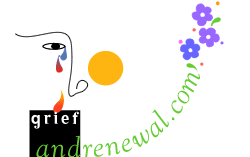|
||
 |
|
REPORT ON WIDOWHOOD ROUNDTABLE II AT THE 49TH SESSION OF THE UN COMMISSION ON THE STATUS OF WOMEN 29 March 2005 We are exceedingly grateful for the great interest the Sigrid Rausing Trust has and is taking in the issues relating to widowhood in the context of poverty, AIDS, conflict, post-conflict, gender discrimination, and women’s human rights. This subject has truly been (and continues to be) scandalously neglected by the international community, including UN agencies and major donors, and by governments. Without your sponsorship of our work in preparing for this UN CSW, this important event would not have taken place and concrete and effective actions in this crucial area of women’s human rights would have been further postponed, with irrevocable negative consequences not just for women, but for all of society. The meeting, co-hosted with UNIFEM, went better than our wildest expectations! This was due to the excellent calibre of the four panellists, the pertinent and urgent contributions from the participants, the charismatic presence and words of Noeleen Heyzer, the Executive Director of UNIFEM, and the fact that we even had one major donor – SIDA – in attendance. Preparation Margaret Owen selected, briefed and commissioned short papers from the four panellists. These were Judge Zakia Hakki, Women’s Alliance for a Democratic Iraq (the first woman judge in the Middle East and Iraq, recently elected and now appointed as Inspector of Planning), Mary Balikungeri, Director, Rwandan Women’s Network, Lily Thapa Chairperson of Women’s Human Rights Single Women’s Group of Nepal (WHRSWG), Dr. Caren Grown, Director, International Centre for Research on Women (focuses on widows, land and inheritance rights and AIDS). Margaret Owen prepared 4 papers:
The Meeting: Held at the UN on Friday 4th March, 2005 This 49th Session of the UN CSW was organized to undertake the 10-year Review of Implementation of the Beijing Platform for Action. This year, 2005, is also the year of the Millennium Summit (September) and the 25th birthday of CEDAW providing an opportune year to draw attention to the situation of widows. Conference Room B was filled to capacity so that many people were unable to get in (including Baroness Prosser, Chair of the UK WNC). The presentations and the comments and questions were such a high level that the SIDA representative, fielding questions on donor’s responsibilities and obligations, announced that she will explore holding a Donor’s Conference in Stockholm to deliberate how they can do more to support and fund grass-roots groups and newly mobilized women, rather than outside NGOs. Instances of best practice were shared for example, Nepal WHRSWG had filed a shadow report on widowhood to the CEDAW, triggering interest from the UNDP in relation to MDGs. The Nepal government, unable to answer their questions as to numbers and ages of widows, has now requested WHRSWG to undertake the “mapping and profiling” project in several districts of Nepal. The Iraqi panellist, an eminent and influential figure, is determined to pursue a situational analysis of widowhood in her country where she estimates that 65% of the adult female population are either widows or wives of the missing, and that 70% of children are dependent on these women. Irrespective of ethnicity, location, education level, after thirty years of war and the horrors of the Saddam Hussein, the widows and wives of the missing are vulnerable now to violence, trafficking, forced prostitution. Although Iraqi widows have never been stigmatized as, for example, Nepali widows, the horrors of recent years, the huge numbers of widows, and their vulnerability to violence from many different sources in the unstable post conflict period prioritises this issue for the new democratic Iraq. Follow-up
We have been invited to attend and Widows for Peace through Democracy has been asked to cosponsor the first ever panel on widowhood at the UN Commission on Human Rights in Geneva on 4 April 2005. Margaret Owen will attend for us and will speak as part of the panel. The draft Widows’ Charter will be presented again at that meeting. This event is organized by WILPF and includes two former international WILPF presidents. There is much more to be done. And we hope that we can come back to the Sigrid Rausing trust in due course, when the next steps to be taken become clearer. We were told by our own WNC during debriefing session at the UK Mission to the UN that this event was one of the very best of the week. (Cf. Janet Veitch, Director of WNC. Valerie Evans, former Chair of WNC) Thank you very much indeed.
return to top
|
